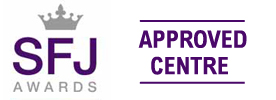Theory
Productivity, competence, and initiative are not best served by inadequate personal management. Often also termed time management, the methodology for personal productivity is something that all investigators should study.
For the private investigator, self-management has a direct effect on the profitability of the investigator's activity. For the public investigator (who has little or no control over the caseload imposed), self-management can reduce stress.
Time management (TM) is a skill usually aimed at managers. A look at the methodology of management from a TM perspective may result in a finding that there are some parallels between what 'executives' do, and what an investigator does. Most TM texts list certain fields of management and deal with them accordingly under a TM heading. Amongst those managerial tasks dealt with by TM books are; meetings; planning; travel; communication; operations; administration and paperwork. It is obvious that each is also a heading for some of the work that an investigator does on a day-to-day basis. Each is a facet of investigation work, either directly as a part, or as a consequence of an investigation.
To illustrate the meaning of the above paragraph: obvious examples of 'meetings' are; briefings, witness and suspect interviews, case conferences, training days. 'Paperwork' examples; statements, crime complaints, accident reports, miscellaneous reports (that list may be too long!). The heading 'Communications' address issues such as the written report or the way that a case summary is written so as to have a bearing on whether a case is taken on by lawyers.
Investigators are therefore managers, unless they have little or no control over their work, or more particularly their method of work. If the investigator is the sole decision maker in any matter in which he or she is involved, or if outside involvement is restricted to advisory input only, then the investigator is required to manage the task as effectively and as efficiently as possible. In order to manage work, the investigator should therefore be in a position to use legitimate management methodology, even at the most basic level.
Investigators at the lowest hierarchical level who may insist that they have no managerial task at all, including those in relation to themselves, can also benefit from time management input. In his book 'Perfect Time Management', Ted Johns suggests that low level workers make time management decisions which, in their own way, can be just as disruptive to the organisations work if made incorrectly as can an incorrect management decision. For those who work away from direct supervision (and investigators are a prime example) the link is stronger, given the need for decisions to be made without recourse to accessible advice.
A service industry has been defined as one that is 'prone to sudden and unexpected developments that no amount of pre-planning and proactivity can reasonably be expected to eliminate' (Godfrey, 1990). This description is probably never so true as when it is applied to investigation.
In applying it to investigation (for the sake of justifying the argument), you can see what is meant. An investigator cannot be expected to know what is going to dealt with prior to it happening. The methods of investigation or prevention as applicable in a given scenario can be studied, and advice can be obtained as to how to prevent or deal with a given set of circumstances if called upon to do so, but something that has not yet happened. Cannot be investigated (For those who say intelligence work is excluded from the above statement, the response is that intelligence work is the investigation of information that has been provided or sought, and it cannot be investigated without having been received.)
It therefore follows that investigations work is made even more difficult by the very 'inexactedness' of the profession. Since an incident cannot be accurately predicted, time cannot be allocated in advance for its investigation, or for addressing the problem. Consequently, when each new task presents itself, an investigator has to be sufficiently flexible so as to formulate a new plan, which requires a new allocation of resources and/or time, and which requires a re-prioritisation of what tasks had already been undertaken as influenced by their importance and urgency as perceived the investigator. The purpose of this module is to provide advice upon self-management.
Page: 2
Module: 28




